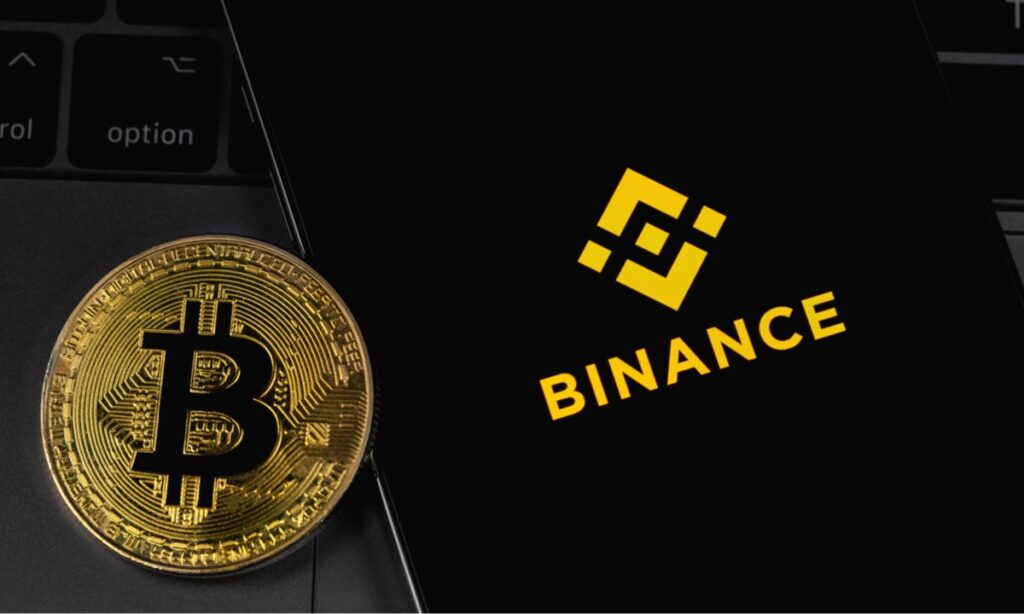Bitcoin (BTC) experienced a pullback on July 27, erasing the gains from the previous day, while macroeconomic data in the United States had a muted effect on the cryptocurrency’s price.
After reaching a brief peak of $29,680 just before the daily close, BTC’s strength started to fade, even though the Federal Reserve had already raised interest rates to their highest level since 2001, which had been anticipated by the markets.
On the same day, the U.S. gross domestic product (GDP) for Q2 exceeded expectations, growing at an annualized rate of 2.4%.
This result suggested that inflationary pressures were still subsiding, potentially benefiting risk asset performance.
Surprisingly, Bitcoin did not show a noticeable reaction to this positive economic data, and stocks remained fairly flat after the Wall Street open.
Michaël van de Poppe, the founder and CEO of trading firm Eight, expressed hope that the release of the July 28 Personal Consumption Expenditures (PCE) Index would provide a more concrete growth incentive.
He believed that a better-than-expected PCE could drive the markets higher.
READ MORE: Best Crypto Projects to Invest in For The Next Bull Run
However, van de Poppe also cautioned that BTC/USD might experience a dip before any potential upward movement, with the critical support level now identified at $29,700.
On-chain monitoring resource Material Indicators had previously suggested that the GDP report would have little impact on the cryptocurrency market, labeling it a “nothingburger” for crypto.
An analysis of the BTC/USD order book on Binance indicated that there was thin support above $28,500, which could ease a market drop if one were to occur.
While the GDP data had little effect on market expectations for the next interest rate decision in September, the U.S. dollar strengthened to two-week highs on July 27.
The U.S. Dollar Index (DXY) reached 101.84, bouncing back from its lowest levels in over a year.
Financial commentator Tedtalksmacro noted that the rate hike event was rather unremarkable, as the markets were reacting as if it were just a step closer to a potential pause in rate hikes, leading to higher prices for both BTC and U.S. equities.
In conclusion, Bitcoin’s price showed some weakness despite positive macroeconomic data from the U.S., and the U.S. dollar strengthened on the same day.
Market participants were keeping a close eye on the upcoming PCE Index release to assess its impact on asset performance.
Other Stories :
Ripple’s Chief Legal Officer Dismisses Concerns of SEC Appeal, Predicts Further Victory
KuCoin Denies Layoff Rumors Amidst Crypto Industry Stabilization
Tennessee Realtor Couple Charged in $6M ‘Blessings of God Thru Crypto’ Investment Fraud
Crypto exchange Binance and its CEO Changpeng “CZ” Zhao have taken steps to contest a lawsuit filed by the United States Commodity Futures Trading Commission (CFTC).
In a recent court filing on July 27, legal representatives for Binance and CZ made a formal request for the dismissal of the CFTC’s claims, citing concerns of regulatory overreach and the exceeding of the commission’s regulatory authority.
The filing strongly argued that the CFTC was attempting to regulate foreign entities and individuals operating outside the borders of the United States, which, according to Binance and CZ, falls beyond the scope of the commission’s statutory jurisdiction.
This approach, they asserted, interferes with the established principles of comity with foreign sovereigns, raising significant legal questions.
According to the defense, the initial six charges presented by the CFTC did not directly relate to the foreign conduct at the core of the case.
Furthermore, certain charges were argued to not meet the required legal standards. As for the seventh charge, which accused Binance of evading the Commodity Exchange Act (CEA), Binance’s legal team maintained that the CFTC failed to meet the necessary requirements to sustain such an accusation.
One of the primary contentions of the motion to dismiss was the CFTC’s alleged lack of regulatory authority over spot trading both domestically and internationally.
The defense questioned whether Binance․com should be subjected to specific registration and regulatory compliance provisions in the CEA and CFTC regulations, considering factors such as the introduction of additional products after 2019 and previous limitations on U.S. users.
READ MORE: KuCoin Denies Layoff Rumors Amidst Crypto Industry Stabilization
The legal clash between Binance and the CFTC began in March when the commission initiated a lawsuit against the exchange.
The CFTC’s allegations included the offering of unregistered derivatives products in the United States, encompassing cryptocurrency trading services, futures, and options products.
Additionally, the CFTC accused Binance of inadequate supervision, lack of a reliable Know Your Customer (KYC) or Anti-Money Laundering (AML) program, and failure to register as a futures commissions merchant, designated contract market, or swap execution facility.
In addition to the CFTC lawsuit, Binance has been facing further legal challenges in the United States due to a separate lawsuit filed by the Securities and Exchange Commission (SEC) in June.
The outcome of the motion to dismiss will undoubtedly be critical for Binance, CZ, and the regulatory landscape surrounding cryptocurrency exchanges in the United States.
As the legal battle continues, industry observers and stakeholders await further developments in this high-profile case.
Other Stories:
Best Crypto Projects to Invest in For The Next Bull Run
Ripple’s Chief Legal Officer Dismisses Concerns of SEC Appeal, Predicts Further Victory
Tennessee Realtor Couple Charged in $6M ‘Blessings of God Thru Crypto’ Investment Fraud
Cryptocurrency exchange KuCoin has denied rumors about laying off 30% of its workforce, amounting to approximately 300 employees.
The company’s spokesperson clarified that there are no plans for such layoffs and any personnel adjustments will be part of the firm’s broader business development strategy.
These adjustments are a normal process in organizational development, according to the spokesperson.
CEO Johnny Lyu echoed this statement in a tweet on July 25, asserting that KuCoin is operating smoothly and any potential staff cuts would be a result of a semi-annual employee performance evaluation.
He emphasized the importance of staying competitive and dynamic in the fast-paced crypto sector.
The rumors about the layoffs were sparked by a post from independent journalist Wu Blockchain, who claimed that KuCoin would cut its workforce due to a strict Know Your Customer policy in the United States, leading to a decline in profits.
However, Wu Blockchain later retracted the claims after KuCoin’s CEO clarified the actual reason for potential staff adjustments.
KuCoin did not specify the percentage of staff that might be affected or which positions would be impacted. Currently, the company employs around 1,000 staff globally, a number that CEO Johnny Lyu stated is continually increasing.
READ MORE: Ripple CEO Brad Garlinghouse Criticizes SEC’s ‘Regulation by Enforcement’
The crypto industry faced significant challenges in 2022 due to the decline in asset prices. Major players like Binance, Coinbase, and Kraken were forced to reduce their headcounts considerably.
Binance reportedly laid off over 1000 employees since May 31, while Coinbase laid off 18% and then another 20% of its staff in June 2022 and January 2023, respectively.
In November 2022, Kraken released 1,100 employees, accounting for about 30% of its workforce at the time.
However, more recent data from March 2023 indicates that the rate of layoffs in the crypto industry may be decelerating.
As the market stabilizes, companies like KuCoin are focusing on strategic business development to navigate the ever-changing crypto landscape.
Other Stories:
Former FTX CEO Accepts Gag Order Amidst Trial
Crypto Lending Firm Faces Service Disruption as Assets Seized by Regulator
A Tennessee husband and wife, Michael and Amanda Griffis, are in hot water as they face charges over an allegedly fraudulent investment scheme named “Blessings of God Thru Crypto.”
The Commodity Futures Trading Commission (CFTC) lodged a complaint on July 24, revealing that the couple used their real estate business connections to lure over 100 victims into investing more than $6 million into a digital assets commodity pool between July 2022 and January 2023.
According to the CFTC, the victims included mortgage brokers and former customers of the Griffis’ real estate business.
Despite having no experience in trading or relevant expertise, the couple managed to convince these individuals that their funds would be used to trade cryptocurrency futures contracts in the commodity pool.
However, the CFTC’s investigation revealed that not a single trade was conducted, and the funds were misused by the Griffis.
Approximately $4 million from the pool was transferred to digital wallets beyond their control, while over $1 million was misappropriated to pay off personal debts and purchase expensive items over several months.
This included $10,000 spent on family members’ college tuition, $20,000 for an all-terrain vehicle, and a whopping $335,000 to pay off credit card debts.
The CFTC accused the couple of falsely reassuring participants that their funds were secure and would yield high profits through crypto futures trading.
READ MORE: Crypto Lending Firm Faces Service Disruption as Assets Seized by Regulator
However, the reality was far from their claims, and the victims fell prey to the scheme.
As a result of their actions, the Griffis’ have been charged with defrauding over 100 victims and also for failing to register with the CFTC, which is required when operating such investment schemes.
In response to the complaint, the CFTC is seeking a permanent injunction against the Griffis and any potential collaborators, prohibiting them from engaging in any future transactions involving commodity interests.
They are also pushing for full restitution to be provided to the victims who sustained losses due to the scam.
Additionally, the CFTC has requested the court to impose civil penalties against the couple.
However, the CFTC cautioned that securing full restitution may prove to be challenging as the alleged wrongdoers are likely to have insufficient funds or assets to cover the losses incurred by the victims.
Michael and Amanda Griffis are affiliated with Exit Realty Screamin’ Eagle based in Clarksville, Tennessee, according to their LinkedIn profiles.
Amanda is listed as a “Broker/Co-Owner,” while Michael holds the title of “Realtor.”
Cointelegraph reached out to the Griffis for comment but did not receive an immediate response.
The investigation and legal proceedings are ongoing as authorities seek justice for the victims affected by this deceitful crypto investment scheme.
Other Stories;
Former FTX CEO Accepts Gag Order Amidst Trial
Ripple CEO Brad Garlinghouse Criticizes SEC’s ‘Regulation by Enforcement’
The United Kingdom’s National Crime Agency (NCA) has recently established a specialized digital assets team under the Complex Financial Crime Team (CFCT) to combat cryptocurrency-related offenses, and they are now in the process of hiring two blockchain investigators for this crucial task.
The main responsibility of these investigators will be to oversee intricate investigations dealing with cryptocurrency and digital assets, particularly from the perspective of the Proceeds of Crime Act (POCA).
The POCA pertains to the seizure and redirection of criminal funds towards benefiting the community, making it an essential component in the fight against financial crimes involving crypto.
The NCA is specifically looking for candidates who are already part of the police staff and hold the certification of an accredited financial investigator (AFI).
In addition to this requirement, expertise in blockchain analysis, criminal investigation, and a comprehensive understanding of relevant legislation will be necessary for potential candidates.
The selected candidates can anticipate a competitive salary, with an approximate amount of 47,380 British pounds ($61,076.37), in addition to other civil service benefits.
In a significant move towards addressing cyber incidents involving cryptocurrencies like Bitcoin, the NCA established the NCCU Crypto Cell in January 2023.
READ MORE: Crypto Lending Firm Faces Service Disruption as Assets Seized by Regulator
This dedicated unit is aimed at intensifying regulatory efforts concerning crypto assets in the UK, aligning with the government’s determination to eradicate illicit funds within the nation.
The emphasis on eliminating “dirty money” highlights the seriousness with which the UK government views the potential risks associated with cryptocurrency-related crimes.
Chris Lewis-Evans, the director of NCA infrastructure investigations, expressed enthusiasm about this employment opportunity.
He described it as a thrilling chance to be part of a team at the forefront of safeguarding the UK against cybercrime, highlighting the vital role that these blockchain investigators will play in securing the country’s financial landscape.
In conclusion, the NCA’s formation of a specialized digital assets team and their pursuit of blockchain investigators signifies the growing importance of addressing crypto crimes in the UK.
As cryptocurrencies continue to evolve and gain widespread adoption, regulatory agencies are recognizing the need for expertise in investigating and combatting illicit activities involving digital assets.
By bringing in skilled professionals to tackle these challenges head-on, the NCA aims to bolster its efforts in protecting the UK’s financial integrity and overall security.
Other Stories:
Former FTX CEO Accepts Gag Order Amidst Trial
Ripple CEO Brad Garlinghouse Criticizes SEC’s ‘Regulation by Enforcement’
NBA star Jimmy Butler has requested his dismissal from a class-action lawsuit that targets celebrities allegedly involved in promoting unregistered securities by Binance.
Butler’s lawyers, in a filing on July 24, argued that the three tweets he appeared in, which promoted Binance between February 2 and February 13, 2022, did not mention any unregistered securities.
Therefore, they contended that these tweets could not have contributed to the promotion of such securities.
The lawyers emphasized that Butler’s tweets were not recommendations for investments; instead, they served as a cautionary message about celebrity crypto endorsements.
He urged potential Binance customers to conduct their own research before making any crypto investments.
The lawsuit, filed in March, named Butler along with Binance, its CEO Changpeng “CZ” Zhao, and YouTubers Graham Stephan and Ben Armstrong (also known as BitBoy Crypto).
READ MORE: Ripple CEO Brad Garlinghouse Criticizes SEC’s ‘Regulation by Enforcement’
Binance had engaged Butler, a prominent player for the NBA’s Miami Heat, in 2022 to promote the exchange in the lead-up to that year’s Super Bowl.
His promotional efforts began with a video promoting a free nonfungible token (NFT) collection from Binance on February 2, 2022, followed by two additional tweets on February 7 and February 13.
In the video sponsored by Binance, Butler advised viewers, “You’re going to hear some of the biggest names telling you to get into crypto, but they don’t know you or your finances.”
He added, “Binance and I are here to tell you, trust yourself and, of course, do your own research.”
One of Butler’s tweets for the exchange encouraged users to use the hashtag “#CryptoCelebAlert” during the Super Bowl for a chance to win one of 2,222 NFTs.
Another video featured Butler once again urging his followers to trust themselves and conduct thorough research into cryptocurrencies.
In a revised complaint on June 27, it was alleged that Butler’s statements were deceptive as they were presented alongside the promotion of Binance’s free NFTs and exchange platform.
In addition to Butler’s motion, Binance, Zhao, and Armstrong have also filed motions to dismiss the class-action lawsuit.
In an earlier development, finance YouTuber Graham Stephan was dismissed from the suit on June 15.
Other Stories:
Crypto Lending Firm Faces Service Disruption as Assets Seized by Regulator
On July 25, the United States Senate displayed overwhelming support for a bipartisan legislation that will make it mandatory for U.S. companies to disclose any investments made in Chinese technologies.
The amendment, which garnered a remarkable vote of 91 to 6, is an addition to the National Defense Authorization Act (NDAA) and is expected to be put into effect later this year, presumably in 2023.
Under this amendment, U.S. companies will be required to inform federal agencies about their outbound investments in Chinese technologies, specifically targeting semiconductors used in artificial intelligence (AI) applications.
The amendment was jointly proposed by Democratic Senator Bob Casey and Republican Senator John Cornyn, based on a version of the Outbound Investment Transparency Act that seeks to address the risks associated with U.S. foreign investments in countries like China.
Senator Casey expressed his strong support for the amendment, emphasizing the necessity of having outbound investment notification to gain a clear understanding of the critical technology being transferred to potential adversaries through these capital flows.
READ MORE: Former FTX CEO Accepts Gag Order Amidst Trial
He further stated that such information would enable the United States to strategically “take control” of its economic future.
The current version of the bill is expected to pass through the Senate by the end of the week, after which it will be reconciled with a related bill that was previously passed in the House of Representatives. Eventually, the final version will be sent to President Joe Biden’s desk for approval.
This legislation comes amid an ongoing tit-for-tat relationship between the U.S. and China concerning emerging technologies.
Notably, on June 28, U.S. officials revealed plans to potentially restrict the computing power in semiconductor chips to limit the availability of AI chips in the Chinese market.
Responding to this, the Chinese government, on July 3, announced its own intentions to impose export controls on metals essential for semiconductor manufacturing.
Continuing this trajectory, on July 5, the U.S. reportedly considered placing controls on the level of access that Chinese companies would have to U.S.-based cloud computing services, impacting products offered by prominent providers such as Amazon Web Services and Microsoft.
These developments reflect the ongoing geopolitical tension surrounding technology and indicate how both nations are taking measures to safeguard their interests and maintain control over critical sectors in the ever-evolving landscape of global innovation.
Other Stories:
Ripple CEO Brad Garlinghouse Criticizes SEC’s ‘Regulation by Enforcement’
Worldcoin Sparks Controversy As It Launches Ecosystem Token
Crypto Lending Firm Faces Service Disruption as Assets Seized by Regulator
Celsius, a top cryptocurrency lender in 2021, collapsed due to inherent business model flaws, regulatory investigations, and legal issues.
Once managing $25 billion in assets for 1.7 million customers, the company’s downfall started in 2022’s bear market, particularly after Terra’s implosion in May.
Celsius’ dependency on its CEL token and high staking rewards left it vulnerable, and when ties to Terra were revealed, the CEL price plummeted.
This prompted the company to move funds off-platform and freeze user withdrawals.
By July 2022, Celsius filed for Chapter 11 bankruptcy with $2.7 billion in debt.
The same month, securities regulators from five U.S. states, including the U.S. Justice Department, CFTC, FTC, and SEC, initiated investigations into the company and its CEO, Alex Mashinsky. Mashinsky resigned in September amidst rumors of planning to escape the U.S.
The first serious allegation against Celsius and Mashinsky emerged in 2023, with the CFTC alleging violations of U.S. regulations and investor deceit.
READ MORE: Worldcoin Sparks Controversy As It Launches Ecosystem Token
Shortly after, the SEC accused them of fraudulent and unregistered billion-dollar offers, leading the FTC to levy a $4.7 billion fine and cease Celsius’ trading. The Justice Department charged Mashinsky with multiple fraud counts.
Mashinsky and former Chief Revenue Officer, Roni Cohen-Pavon, also faced charges of manipulating CEL prices while selling their tokens at inflated prices.
However, the Southern District of New York’s United States attorney stated that Celsius would not face charges after agreeing to accept responsibility and assist in fund recovery for customers.
Mashinsky was arrested but subsequently released on a $40 million bond.
The Celsius debacle has put other crypto companies under regulatory scrutiny. Binance and Coinbase are facing similar lawsuits.
The increased regulatory enforcement has sparked debates about clarity in regulations. Legal experts suggest that these legal repercussions could improve the crypto industry by dissuading fraudulent practices.
However, regulators must also safeguard the rights of both crypto companies and their customers.
Crypto industry advocates argue that persecuting bad actors is a positive step, creating an environment where users can trust the safety of their assets.
Other Stories:
Ripple CEO Brad Garlinghouse Criticizes SEC’s ‘Regulation by Enforcement’
Crypto Lending Firm Faces Service Disruption as Assets Seized by Regulator
Bitcoin (BTC) faced the threat of further declines over the weekend as the July 23 candle close approached.
The cryptocurrency was trading below $30,000, which had now become an intraday resistance level, according to data from Cointelegraph Markets Pro and TradingView.
On July 22, BTC briefly dipped to $29,640 before recovering by the daily close, but traders remained concerned about the possibility of more downside movement. Crypto Tony, a popular trader, warned his Twitter followers about a double top rejection on the BTC chart and highlighted two critical psychological levels to watch out for – $25,000 and $20,000.
Another trader and analyst, Nebraskan Gooner, concurred with the idea of further downward price action for BTC, pointing out that it had fallen below the narrow range that had been in play for the past month.
As for the future direction of Bitcoin’s price, some traders were waiting for increased market volatility, but they were hesitant to predict whether it would break out or break down to test earlier-year levels.
Toni Ghinea, a well-known trader and analyst, anticipated a decisive move in the recent narrow price range in the coming week.
READ MORE: Report Reveals Alarming Surge in Cryptocurrency Use by ISIS Terrorists
He identified $31,000 to $32,000 as a resistance area and $29,000 as a support level, advising caution if a break above the resistance occurs.
Ghinea warned against becoming overly optimistic in such a scenario as it could still be near the range high.
Conversely, a potential decline could see BTC testing the 27,000 to 28,000 range, with the $19,000 to $23,000 zone still being a possibility.
Amidst these technical considerations, market participants were bracing for a crucial week with the Federal Open Market Committee (FOMC) meeting on the horizon.
The FOMC, responsible for setting interest rates in the United States, could provide significant volatility indicators as it makes decisions on monetary policy.
Market sentiment leaned heavily toward predicting a return to rate hikes, with odds standing at 99.2% as of July 23, according to CME Group’s FedWatch Tool.
Overall, Bitcoin’s price remained under pressure as traders closely monitored key levels and events that could influence the cryptocurrency’s trajectory in the near future.
Other Stories:
Controversial Proposal Sparks Fierce Debate Among Members of Solana-Based Liquidity Network
Terraform Labs Faces Uphill Battle Amidst Allegations, New CEO Discusses Road Ahead
Crypto payment platform Alphapo suffered a major security breach on July 22, resulting in the loss of at least $31 million from its hot wallets, comprising cryptocurrencies Ether (ETH), TRON (TRX), and Bitcoin (BTC). The value of the stolen assets is likely to be even higher due to uncertainties surrounding the number of stolen Bitcoins.
According to security experts, the attack was executed by siphoning funds from Alphapo’s hot wallets on the Ethereum network, converting them into ETH, and then moving them to the Avalanche and Bitcoin blockchains.
The breach may have been facilitated by a leak of private keys, although investigations are ongoing to determine the full extent and cause of the hack.
Alphapo is a prominent payment processor offering instant transactions in over 30 digital assets, along with fiat currency balances.
It has gained recognition as the gateway for various gambling platforms, including HypeDrop, Ignition, and Bovada.
Following the security incident, one of Alphapo’s clients, HypeDrop, temporarily suspended crypto transactions due to the hack’s impact on their operations.
The mystery box platform assured its users that their funds are safe but acknowledged the disruption in processing deposits and withdrawals. HypeDrop expects normal operations to resume once the cryptocurrency provider resolves the issue.
READ MORE: 2023 Ranking: 4 Best Crypto Projects To Buy
Despite the breach, Alphapo’s spokesperson declined to comment on the specific details of the incident.
However, they did confirm that deposits and withdrawals are being gradually reinstated for certain batches of currencies.
Users were urged not to send funds to old deposit addresses and were assured that any funds from such deposits would undergo additional verification.
In a separate security-related event, decentralized finance protocol Conic Finance faced two attacks in quick succession over the past few days.
The first attack resulted in the theft of $3.26 million worth of Ether, with the majority of the stolen funds sent to a single Ethereum address.
Shortly after, a second incident occurred in which the attacker employed a variant of a sandwich attack to target the protocol’s pools, yielding them around $300,000.
Both Alphapo and Conic Finance incidents highlight the ongoing risks and vulnerabilities in the cryptocurrency space.
Security experts and blockchain communities remain vigilant as they continue to develop and implement measures to protect users’ assets from potential threats.
Other Stories:
Report Reveals Alarming Surge in Cryptocurrency Use by ISIS Terrorists
Controversial Proposal Sparks Fierce Debate Among Members of Solana-Based Liquidity Network
Terraform Labs Faces Uphill Battle Amidst Allegations, New CEO Discusses Road Ahead












